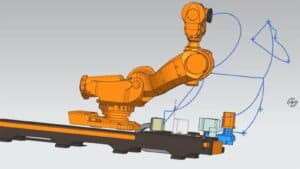As an avid podcast listener and occasional editor, I understand the importance of finding the best laptop for editing podcasts. Whether you're a seasoned podcaster or just starting out, having a reliable and powerful laptop is essential for producing quality content. In this guide, I'll help you navigate the vast landscape of laptop options, so you can find the ideal device for your podcast editing needs.
Podcast editing involves working with audio editing software and occasionally video editing software if you choose to include a visual element. This means that, in addition to the usual requirements of a good laptop, podcast editors need a device with a strong processor, ample RAM, and fast storage. Moreover, a high-quality display and accurate audio reproduction are important factors to consider when searching for the best laptop for editing podcasts.
My selection process involves reviewing an extensive laptop spreadsheet of recent releases, comparing specs and reviews (both professional and user-generated), and narrowing down the top laptops based on podcast editing-specific requirements and price ranges. Throughout this guide, I'll focus on the unique preferences of podcast editors, discussing the essential features and how they impact the overall editing experience. With my help, you'll be well-equipped to find the best laptop for editing podcasts and take your production to new heights.
Power Up Your Editing with These Processors
As a podcaster, your laptop's processor is a crucial factor when it comes to editing your audio files. In recent years, the processor market has seen some significant changes. Apple has introduced ARM-based M1, M2, M2 Pro, and M2 Max chips, which offer exceptional single-core performance and battery life. AMD has captured 20% of the laptop CPU market, and the latest Ryzen processors offer excellent battery life. Intel's 13th-generation Core processors have already been released, but the 12th-generation Core CPUs can still provide good value.
When it comes to podcasting, a fast processor is not always necessary, but it's still worth considering if you're using a lot of effects and applying them to your audio files. In this case, at least 4 cores (8 would be even better) are recommended.
To compare processors, I use Cinebench and PassMark as they are more relevant than benchmarks like 3DMark which are not as helpful when it comes to podcasting.
Here are some recommended processors for podcast editing, in order of price:
| Processor | Price Range | Cores | Base Clock Speed | Turbo Boost Speed |
|---|---|---|---|---|
| i5-11320H | Budget | 4 | 3.1 GHz | 4.4 GHz |
| AMD Ryzen 5 5600U | Mid-range | 6 | 2.3 GHz | 4.2 GHz |
| i5-11500H | High-end | 6 | 2.9 GHz | 4.6 GHz |
If you're on a budget, don't expect to get a fast processor; instead, focus on getting a CPU that's energy efficient and doesn't get too hot. These days, most laptops have adequate cooling even without active fans due to passive cooling designs. Ultimately, the right processor for you depends on your budget and the level of performance you need for editing your podcasts.
Power up your editing game with a graphics card
The right laptop graphics card for podcast editing largely depends on your needs. While MacBooks are popular, they're not always the best choice for everyone. A dedicated graphics card is not necessary for podcast editing, but it can be helpful if you work with video or 3D models.
Nvidia continues to dominate the laptop GPU market, with their RTX 30 series cards comprising the majority of current notebook GPU options. Nvidia has also recently introduced their RTX 40 series cards, which are more suited to machine learning and AI applications than gaming.
To know if a laptop has a high-end or low-end graphics chip, look at the model number. Nvidia has discontinued the Max-Q label and now allows laptop manufacturers to determine exact GPU wattage, resulting in varying graphics performance even in laptops with the same chipset.
To rank GPUs by performance, battery life, and thermals, use benchmarking tools like 3DMark to compare laptop graphics performance across various laptop brands and models. If you're looking for a gaming laptop that can also be used for podcast editing, look for one with a high refresh rate panel over 240 Hz.
Here are our recommended GPUs, organized by price bracket:
| Price Bracket | Recommended GPU |
|---|---|
| Minimum | GeForce RTX 3050 |
| Mid-Range | GeForce RTX 3060 |
| High-End | GeForce RTX 2080 SUPER |
Keep in mind that these are just recommendations, and it's important to consider your specific needs and budget when selecting a laptop graphics card for podcast editing.
Editing Podcasts on the Go: Common Laptop Questions Answered
Q: Which laptop is best for podcast editing?
It depends on your budget and specific requirements. However, some of the best laptops for podcast editing include the HP Victus, Lenovo Legion 5 Pro, GIGABYTE AORUS 15 XE4, and ASUS ROG Strix Scar.
What specs do I need for a laptop for podcast editing?
For podcast editing, you'll need a laptop with at least an i5-11320H processor or AMD Ryzen 5 5600U, GeForce RTX 3050 graphics card, and 16GB of RAM. However, for more demanding tasks or larger projects, it's recommended to get a laptop with a higher specification.
Can you edit podcasts on a laptop?
Yes, you can edit podcasts on a laptop. Laptops today are powerful enough to handle podcast editing software, which can provide the necessary tools to produce professional-quality audio.
What software is best for editing podcasts on a laptop?
Some of the best software for editing podcasts on a laptop include Adobe Audition, Audacity, and Logic Pro. These software packages offer a range of features that enable you to edit and mix audio tracks, remove noise and distortion, and add effects.
How much RAM is required for podcast editing on a laptop?
For podcast editing, it's recommended to get a laptop with at least 16GB of RAM. However, if you're working on more demanding projects or using multiple applications simultaneously, it's advisable to get a laptop with 32GB or 64GB of RAM.
Is a dedicated GPU necessary for podcast editing on a laptop?
A dedicated GPU is not necessary for podcast editing on a laptop. However, if you plan to use your laptop for other tasks such as gaming or video editing, a dedicated GPU can be helpful.
What is the best processor for podcast editing on a laptop?
The best processors for podcast editing on a laptop include the i5-11320H, AMD Ryzen 5 5600U, and i5-11500H. These processors offer excellent performance and can handle most podcast editing tasks with ease.
Do I need a high-resolution display for podcast editing on a laptop?
While a high-resolution display can be helpful for podcast editing, it's not necessary. A laptop with a resolution of at least 1920 x 1080 should be sufficient for most podcast editing tasks.
How to choose a laptop for podcast editing?
When choosing a laptop for podcast editing, consider the processor, graphics card, and RAM. Also, look for a laptop with a good display, comfortable keyboard, and long battery life. It's also important to consider your budget and specific requirements.
Can I use a Chromebook for podcast editing?
Chromebooks are not recommended for podcast editing as they usually have low-powered processors, limited storage, and limited app support. It's best to get a laptop with at least an i5 or Ryzen 5 processor, a dedicated GPU, and at least 16GB of RAM for podcast editing.
Rev up your editing with the right RAM
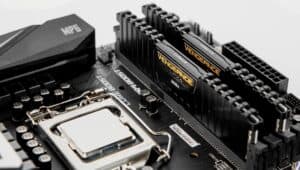
RAM plays a crucial role when it comes to audio editing, including podcast editing. With limited RAM, you may encounter issues such as slow performance, lag, and even crashes, which can severely affect your workflow.
For podcast editing, 16 GB of RAM should suffice for most users. However, if you frequently work on multiple projects at once or use more demanding software, 32 GB of RAM is highly recommended. It provides ample memory to handle larger files and enables you to multitask efficiently without worrying about memory constraints.
While the latest-gen Intel and AMD CPUs support DDR4 and DDR5 RAM, DDR5 is still relatively expensive and may not offer significant performance gains for audio editing. DDR4 RAM should be sufficient for most podcast editing needs.
Aside from the capacity, other RAM considerations include latency and frequency. Lower latency and higher frequency RAM can provide a slight boost in performance but are generally not significant enough to warrant a substantial price increase.
If you're in the market for a laptop for podcast editing, prioritize getting more RAM over upgrading your CPU or GPU. Upgrading your RAM is often more cost-effective and provides a more noticeable improvement in performance.
Here are our recommendations for laptop configurations based on various price points:
| Price Range | Recommended RAM |
|---|---|
| Under $1000 | 16 GB |
| $1000 – $1500 | 16-32 GB |
| $1500 – $2000 | 32 GB |
| $2000+ | 64 GB |
Remember, investing in more RAM upfront can save you from costly upgrades down the road and ensure smooth and efficient podcast editing.
4 Best Laptops for editing podcasts
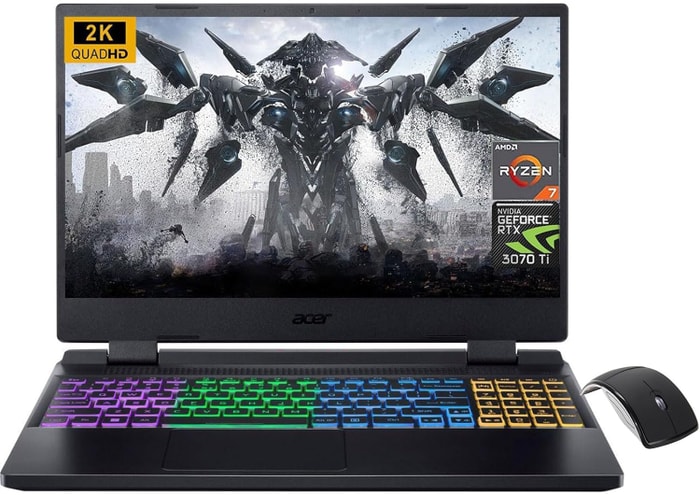 $680
$6801.acer Nitro 5
editing podcasts laptop- Excellent processor (Ryzen 7 6800H)
- Superb graphics card (RTX 3070 Ti)
- Solid display (15.6)
- First-class memory amount (32GB)
- No IPS Panel (worse contrast)
Alternatives
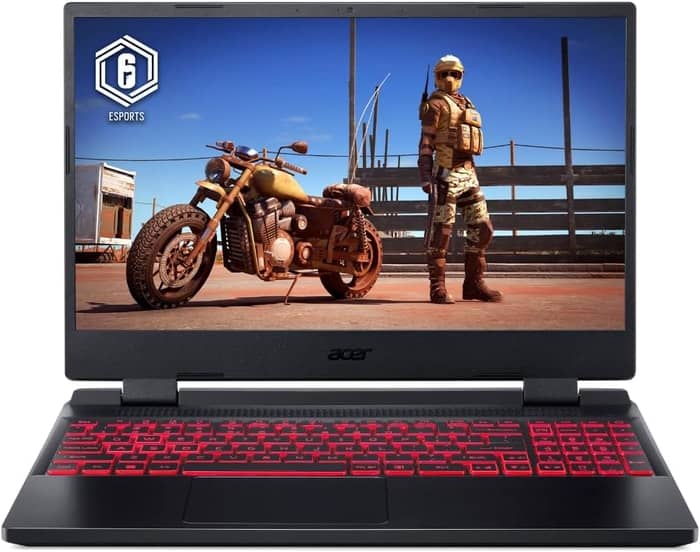
acer Nitro 5
- Affordable price
- Decent performance for podcast editing with 12th Gen CPU and GeForce RTX 3050 Ti
- Limited storage capacity and CPU for gaming
- Middling build quality

2.ASUS TUF Dash F15
Affordable and powerful, the ASUS TUF Dash F15 is a solid choice for editing podcasts on a budget.- Lightweight and well-built
- Good inputs and IO
- Options for FHD 300Hz and QHD screens
- More powerful than the previous generation
- Some quirks affecting everyday ergonomics
- Ports squeezed together on the left edge
- Caution needed with the FHD 144Hz panel option
Summary
The ASUS TUF Dash F15 is a lightweight and well-built laptop that offers good performance for editing podcasts. With its competitive price, good inputs, and options for FHD 300Hz and QHD screens, it provides a balanced and affordable solution. However, users should be cautious about the FHD 144Hz panel option and some quirks affecting everyday ergonomics.
Reviews
Alternatives

Lenovo Legion 5i Pro 16
- Stylish, sleek form factor
- Gorgeous display
- Webcam quality is poor
- Lack of biometric features
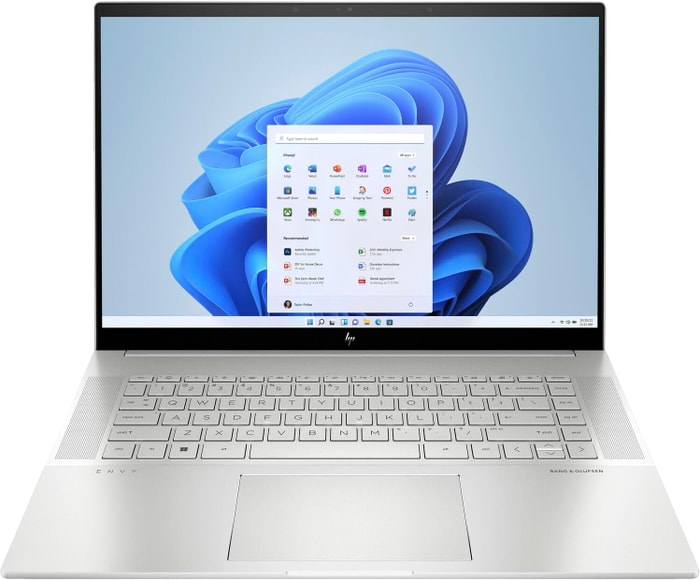 $1,800
$1,8003.HP Envy 16
HP Envy 16: A powerful and sleek choice for podcast editing, but not without its downsides.- Plenty of CPU and GPU power
- New 120Hz screen refresh rate
- High-res webcam
- Sleek design
- Merely adequate base screen
- Optional OLED has fewer pixels than before
- Bulky and heavy
Summary
The HP Envy 16 offers a range of high-end features, making it an appealing option for editing podcasts. With its ample CPU and GPU power, 120Hz refresh rate, high-resolution webcam, and sleek design, it has a lot to offer. However, it does have some drawbacks, including a merely adequate base screen, fewer pixels on the optional OLED display, and its bulky and heavy build.
Reviews
Alternatives

ASUS ROG Strix G15
- High-performance CPU and GPU
- Well-built and sleek design
- Limited connectivity options
- Potential for coil whine in certain situations

4.Lenovo Legion Pro 7i 16
Lenovo Legion Pro 7i 16: Powerful and Sleek Gaming Laptop with a Competitive Price- Strong overall performance
- Big, bright, and fast display
- Per-key RGB lighting
- Some flex to keyboard deck
- Poor battery life
Summary
The Lenovo Legion Pro 7i 16 is a gaming laptop that delivers impressive performance with its i9-13900HX processor and RTX 4090 graphics card. It offers a sleek design and competitive pricing, making it an attractive option for those looking for a long-term investment in a high-end gaming laptop.
Alternatives

HP Omen 17
- QHD display with 165 Hz refresh rate
- Expandable working memory
- Slightly below-average performance for a RTX 4080 GPU
- High noise level
Table of the Best Laptops for editing podcasts
| Laptop | Price (approx) |
| acer Nitro 5 | $680 |
| ASUS TUF Dash F15 | $1,160 |
| HP Envy 16 | $1,800 |
| Lenovo Legion Pro 7i 16 | $3,390 |



